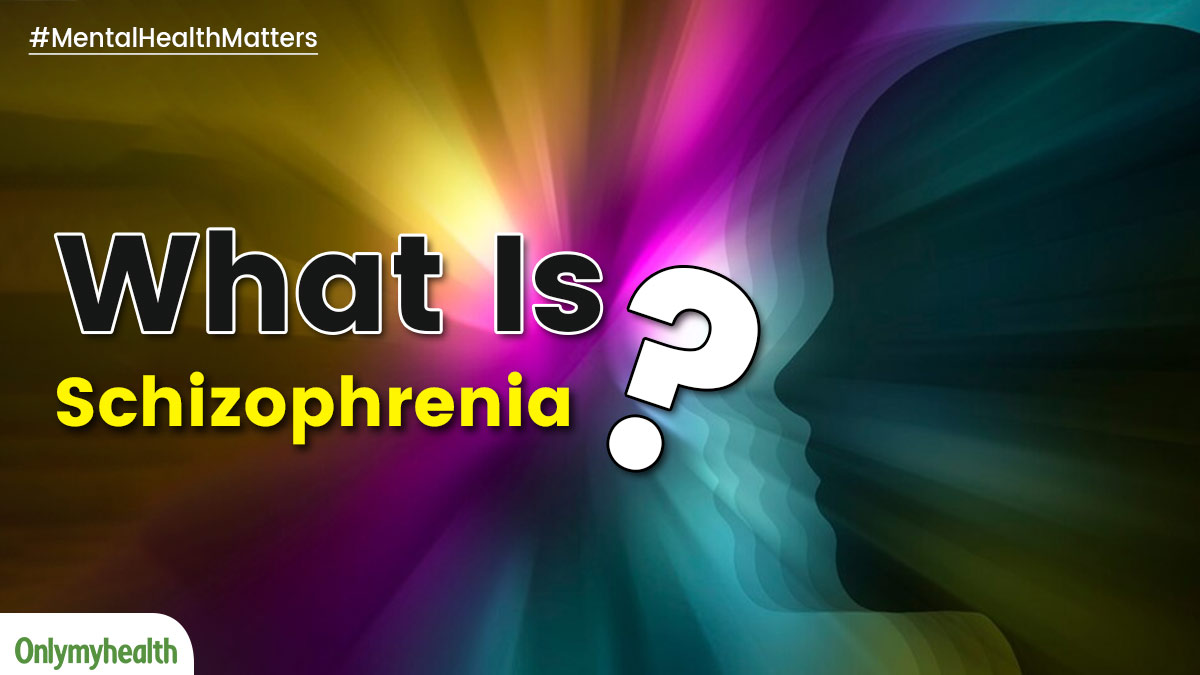
Have you ever wondered what it's like to experience a world shaped by the complexities of the mind? Imagine hearing voices that others can't hear or believing in things that aren't true. These are some signs of schizophrenia. People with this condition may also have confused thoughts, making it difficult to communicate clearly. This week in our ‘Mental Health Matters’ series, we discuss schizophrenia.
Table of Content:-
We spoke to Pragati Goyal, Lead Clinical Psychologist at Lissun, a mental and emotinal health startup who explained this condition, its causes, and treatment measures.
What Is Schizophrenia?

Schizophrenia is a persistent, severe mental illness that has an impact on your thoughts, feelings, and actions. It is considered a psychotic condition since it frequently results in a loss of awareness of reality. It is characterised by a range of symptoms that can vary in severity. These may come and go over time.
People with schizophrenia are often identified between the ages of 16 and 30 following the initial episode of psychosis, according to the US National Institute of Mental Health.
Types Of Schizophrenia
Goyal highlighted that worldwide-used diagnostic systems no longer categorise schizophrenia into different types. However, based on clinical appearance, five subtypes of schizophrenia had been identified: residual, undifferentiated, disorganised, catatonic, and paranoid.

Paranoid Schizophrenia
It is characterised by the person having a delusion of persecution, where they believe someone is after them or wants to kill them.
Disorganised Schizophrenia
In this case, the person appears chaotic, and their social interactions and emotional reactions are improper.
Catatonic Schizophrenia
Motor functions in the brain are disrupted, resulting in either a significant reduction in voluntary movements or agitation.
Undifferentiated Schizophrenia
The undifferentiated type is when the person with schizophrenia does not fit into any of the categories described above.
Residual Schizophrenia
In this type, the person experiences fewer symptoms of schizophrenia than those seen in the active stages.
Also Read: Mental Health Matters: Mental Disorders and FAQs Related To Them
What are the common symptoms?
The symptoms of schizophrenia are broadly divided into three categories: positive, negative, and cognitive. Goyal described them as follows:

Positive Symptoms
Positive symptoms refer to the set of symptoms that are generally not present in people with normal functioning. They are an addition to a person's reality. These symptoms can be scary, disruptive, and upsetting, which makes it difficult for the person to function. These can include hallucinations, delusions, disorganised thinking, and abnormal body movements.
- Hallucinations are false perceptions, where the person can hear, see, smell, taste or feel something unreal. The experience of hearing voices is common in those with schizophrenia.
- False beliefs based on unfounded assumptions are called delusions. Goyal said that a person with schizophrenia might believe that an agency is after him or that food served by their family members is poisoned.
- Many people with schizophrenia also exhibit disorganised thinking, which makes it challenging to follow someone's speech and may cause it to sound pointless or unconnected to the subject.

Negative symptoms
Negative symptoms refer to the absence or insufficiency of normal behaviour. For example, the person might show little interest in carrying out daily functions, even maintaining their hygiene. The person might show indifference to activities which are generally pleasurable, like social interactions, eating, and sexual relations. The person might completely withdraw from social interactions. They might also look as if they are wearing a mask all the time. They will not give you emotional reactions and their facial expressions will not change.
Cognitive Symptoms
A cognitive symptom is having trouble paying attention, concentrating, or remembering things. A person with schizophrenia might have difficulty in reasoning and problem-solving.
Also Read: Mental Health Matters: What Is Personality Disorder, Explained
Causes Of Schizophrenia

Goyal said that the exact cause of schizophrenia is still not known and is being researched. The current consensus is that it is a combination of brain chemistry, genetic predisposition, and environmental factors, contributing to the illness.
She added, "The research has shown that schizophrenia runs in families, however, there is no single gene that has been identified that is responsible for the condition, rather it is suspected that a combination of genes increases the vulnerability to the illness. Some studies have also linked that balance and functioning of certain brain neurotransmitters, like dopamine, serotonin, norepinephrine and many more, cause the condition.
Schizophrenia is also associated with subtle changes in the structure of the brain. Conditions surrounding birth, such as deadly virus exposure, problematic pregnancies, and problematic deliveries, have been related to an increased risk of schizophrenia.
What can be the treatment and diagnosis of schizophrenia?

Schizophrenia is seen as a chronic illness. Although not entirely treatable, this mental illness can be managed. Antipsychotic drugs, psychotherapy, and support services are frequently used in conjunction. Early diagnosis and treatment are key. Those with schizophrenia can manage their symptoms, reduce the frequency and severity of relapses, and lead fulfilling lives.
Disclaimer
The information in this article is provided by an expert, however, we recommend you consult your healthcare professional for a diagnosis catered to your needs.
Also watch this video
How we keep this article up to date:
We work with experts and keep a close eye on the latest in health and wellness. Whenever there is a new research or helpful information, we update our articles with accurate and useful advice.
Current Version